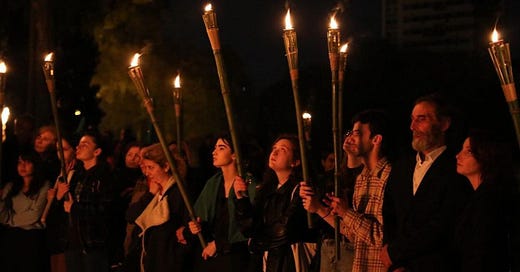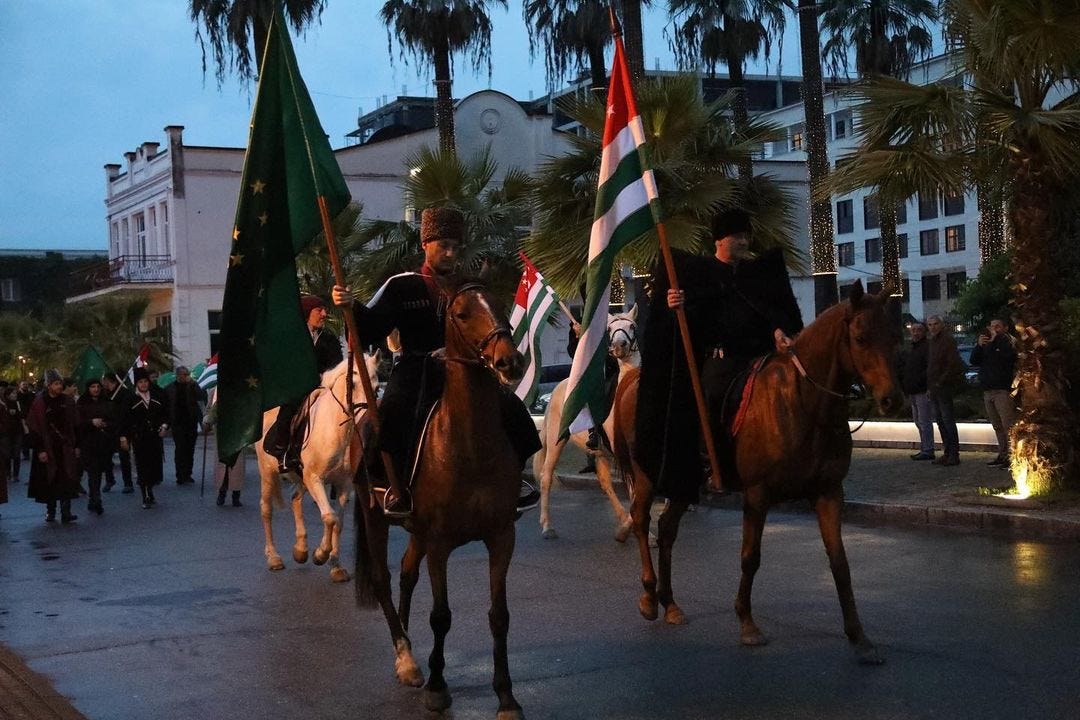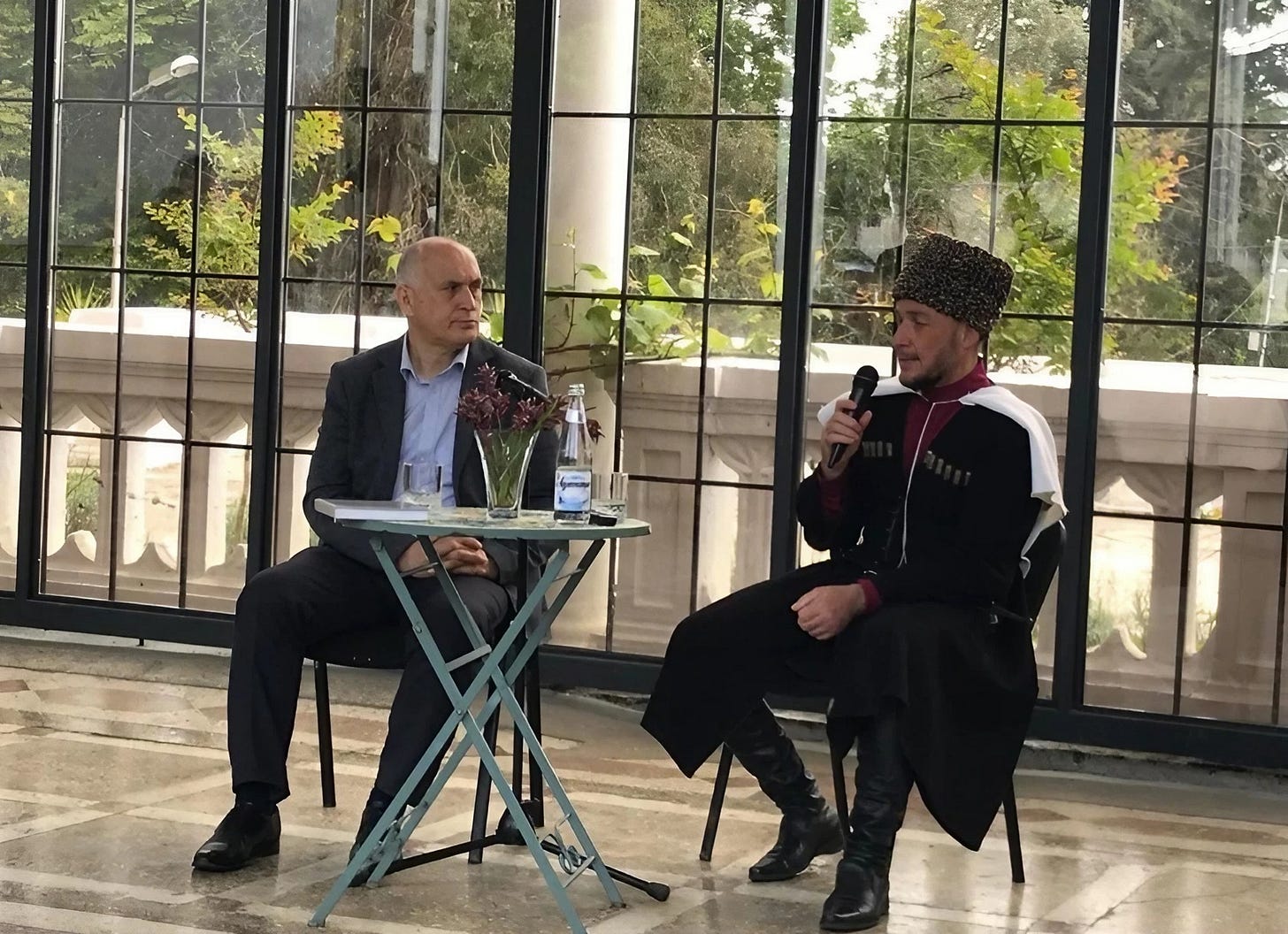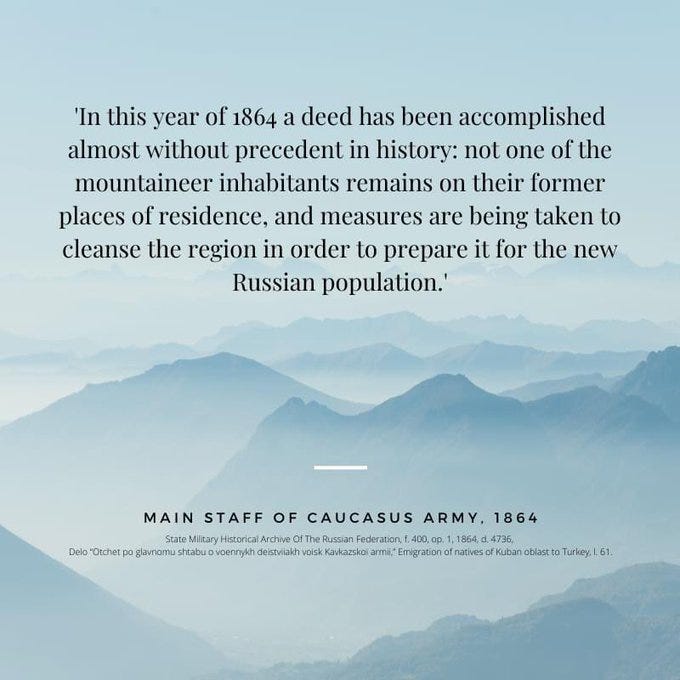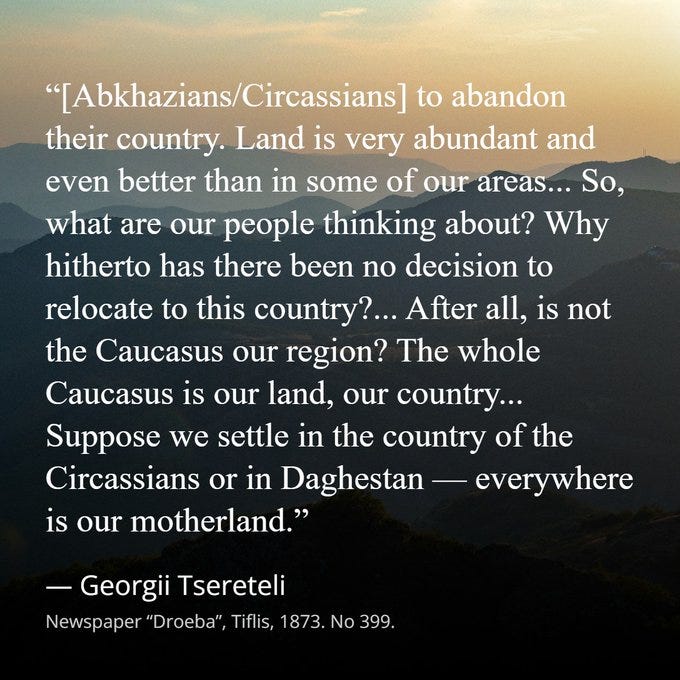Memorial events were held in Abkhazia on Sunday, May 21, 2023, commemorating the 159th anniversary of the end of the Russian-Caucasian War.
This war, which concluded on May 21, 1864, led to the displacement of thousands of Abkhazians, Circassians, and Ubykh who were forced to leave their homeland in the 19th century. Most sought refuge in the Ottoman Empire, while others relocated to various countries in the Middle East.
In the capital city of Sukhum, commemorative proceedings began in the evening with an organised procession of horse riders and torchbearers dressed in national clothes. They journeyed from Sergey Bagapsh Square to the monument of the Mukhadzhirs (exiles) located on the embankment.
Before the commencement of the flower-laying ceremony, a minute of silence was observed in remembrance of the tragic events of the 19th century. Key figures of Abkhazia's leadership, including President Aslan Bzhania, Speaker of the Parliament Lasha Ashuba, and Head of the Presidential Administration Jansukh Nanba, participated in the event alongside parliament deputies, members of the government, descendants of the Mukhadzhirs who have returned to their historical homeland, public representatives, students, and schoolchildren. They all laid flowers at the Mukhadzhir monument located on the Mukhadzhirs Embankment.
Echoes of the Past: Abkhazia Recalls the End of the Russian-Caucasian War
Sukhum hosted a series of memorial activities in honour of the Day of Remembrance of the Victims of the Russian-Caucasian War. This day, 21st May, marks the end of the Russian-Caucasian War in 1864, a war that spanned from 1817 to 1864, forcing tens of thousands of Caucasians, including Abkhazians, into exile from their native land to the then Ottoman Empire.
The cultural and business site "Guma" is currently hosting an exhibition of the distinguished artist Batal Dzhapua's graphic works. His illustrations for Bagrat Shinkuba's renowned novel "The Last of the Departed" are prominently on display. In addition, this commemorative event featured insights by esteemed scholars - Aslanbek Mirzoev, a candidate of historical sciences and Hero of Abkhazia, and Viacheslav Chirikba, Doctor of Philological Sciences and Director of the Center for Strategic Studies under the President of the Republic of Abkhazia.
+ Gudauta Remembers Victims of the Russian-Caucasian War
+ 159 Years Later: Day of Remembrance of the Russian-Caucasian War Victims
Georgi Dzidzaria, who has devoted an entire book to the problem of emigration from Abkhazia in the nineteenth century, concludes that 470,703 people were forced to leave the west Caucasus in only 1863-64.
“The cantons of Akhchipsy, Aibga, and Pshou in northwest Abkhazia resisted Russian advances until 1864. That year marked the official end of the Russian-Caucasian War and saw approximately 25,000 Abkhazians, primarily the Sadz, Akhchpsy, Aibga, and Pshou, forced to leave their homeland. Their territories, stretching from Sochi to the Bzyp River, became almost completely deserted.”
— Georgi Anchabadze
It was no accident that the Georgian newspaper ‘Shroma’ considered Georgian acquisition of the land in Abkhazia and Circassia as ‘one of the most wonderful events’ in the life of the Georgian nation ['Shroma', 1882, No: 15 (in Georgian)].
See: Georgii Tsereteli (1879): It’s time that we grab new territories in the Caucasus
It is reported that the late Said Pasha, Viceroy of Egypt, was one day talking of the Circassians, and that the Russian consul who was present would not lose the opportunity to make the observation, "If a man steals a horse or a cow, we call him a Tcherkess." Said Pasha replied, "Yes; and if he seizes a whole province, then he is called a czar." — The petition goes on to state that: "The tyranny of the Russians was not confided to capturing our cattle, burning our dwellings and temples, and other unheard-of atrocities, but in order to starve us on the mountains they destroyed all our growing crops in the plain, and capture our land."
...If we were to emigrate, abandoning our homes for ages protected by our forefathers, who shed their blood for them, our poverty would prove a great obstacle to our doing so; in fact, how could we take away our own wives and children, and the widows, orphans, and helpless relations of those slain in this war. Such as undertaking would decimate the emigrants. and blot out forever our Caucasian name from the face of the earth."
"In the presence of these difficulties they implore the protection of the queen, and pray her to interfere of prevent the extermination of a nation number a million of souls: these are the Circassians and Abkhasians."
'Littell's Living Age', Volume 82, Boston, July, August, September 1864 page 466.

